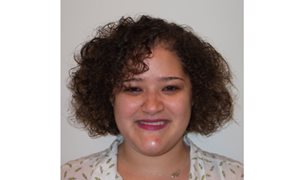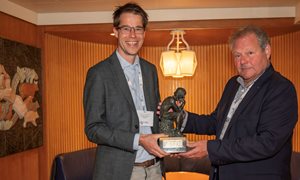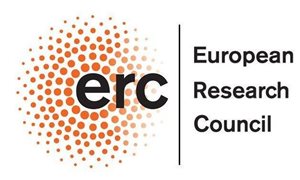
Hans Jacobs and Pieter Langerhorst, theme Cancer development and immune defense, worked together with an international team of researchers, led by the Radboudumc and the Erasmus MC. They have developed a novel technique for the ultra-sensitive assessment of minimal residual disease (MRD) in a single drop of blood of patients with multiple myeloma using mass spectrometry.
In the latest edition of Clinical Chemistry they show that their blood-based method performs equally well compared to MRD-evaluation on bone marrow. “Through personalized diagnostics on one drop of blood, we can create a patient-friendly alternative to monitor minimal residual disease in myeloma patients,” says principle investigator Hans Jacobs, who is supported by a KWF grant.
Multiple Myeloma is the second most common hematological malignancy, characterized by cancer plasma cells in the bone marrow. These monoclonal plasma cells produce a patient and cancer specific monoclonal antibody (M-protein), which is used to monitor disease activity. There is not yet a cure for patients with multiple myeloma. However, due to improved treatment strategies an increased percentage of patients reach a state of MRD. In these patients disease load must be measured with invasive bone marrow aspirations because currently there is no method available that is sensitive enough to detect low disease activity in the blood.
The novel method is based on very sensitively measuring the unique patient-specific region of the M-protein by LC-MS/MS in a single drop of blood of patients with multiple myeloma (MS-MRD). In their publication in Clinical Chemistry the researchers showed that MS-MRD is 1000-fold more sensitive compared to current blood-based diagnostics. In a head-to-head comparison of MS-MRD with bone marrow-based MRD evaluation they found that the assays performed equally well to monitor MRD in patients with MM. The blood-based MS-MRD assay allows continuous MRD-evaluation over time “This opens the possibility to monitor these patients in greater detail, which is crucial for early detection of disease relapse” says PhD candidate Pieter Langerhorst (Dep. Laboratory Medicine). “We have created personalized diagnostics that can make a significant positive impact for myeloma patients. This study is a key step towards the implementation of our blood-based MS-MRD assay”.
Related news items

T cell immunity is directed by tetraspanin CD53
5 July 2022 T cells are immune cells that are key for the defense against pathogens and cancer. T cells depend on the membrane protein CD45 to initiate T cell receptor signaling, but how CD45 is controlled at the molecular level is poorly understood. go to page
A single protein complex balances the very first lineage decision of cells in human: towards foetus or placenta
21 June 2022 The international group of researchers spearheaded by Dick Zijlmans and Hendrik Marks together with colleagues from KU Leuven, examined which proteins are associated with the chromatin and how this affects gene transcription. go to page
Dutch Society of Clinical Chemistry Science & Innovation Award for the team of Hans Jacobs
14 June 2022 The team of Hans Jacobs pioneers on the development of personalized diagnostics to measure minimal residual disease in patients with multiple myeloma. go to page
European grants for groundbreaking Radboudumc research Professors Roshan Cools and Peter Friedl receive ERC Advanced Grant
26 April 2022The European Research Council (ERC) is awarding grants to Roshan Cools and Peter Friedl, both professors at Radboudumc. While Cools will investigate how brains control behaviour in (stressful) situations, Friedl will work on developing a new cancer therapy.
go to page
Saponin-based adjuvant-induced dendritic cell cross-presentation is dependent on PERK activation published in Cellular and Molecular Life Sciences
20 April 2022 Lisa Huis in ‘t Veld, Nataschja Ho and colleagues from the team of Gosse Adema published in Cellular and Molecular Life Sciences that Saponin-based adjuvant-induced dendritic cell cross-presentation is dependent on PERK activation. go to page
Rubicon grants awarded to three RIMLS researchers
19 April 2022Three researchers have received Rubicon funding from NWO/ZonMw. This will enable Elke Muntjewerff, Laura de Vries and Laurens van de Wiel to do research at a foreign research institute for the next two years.
go to page